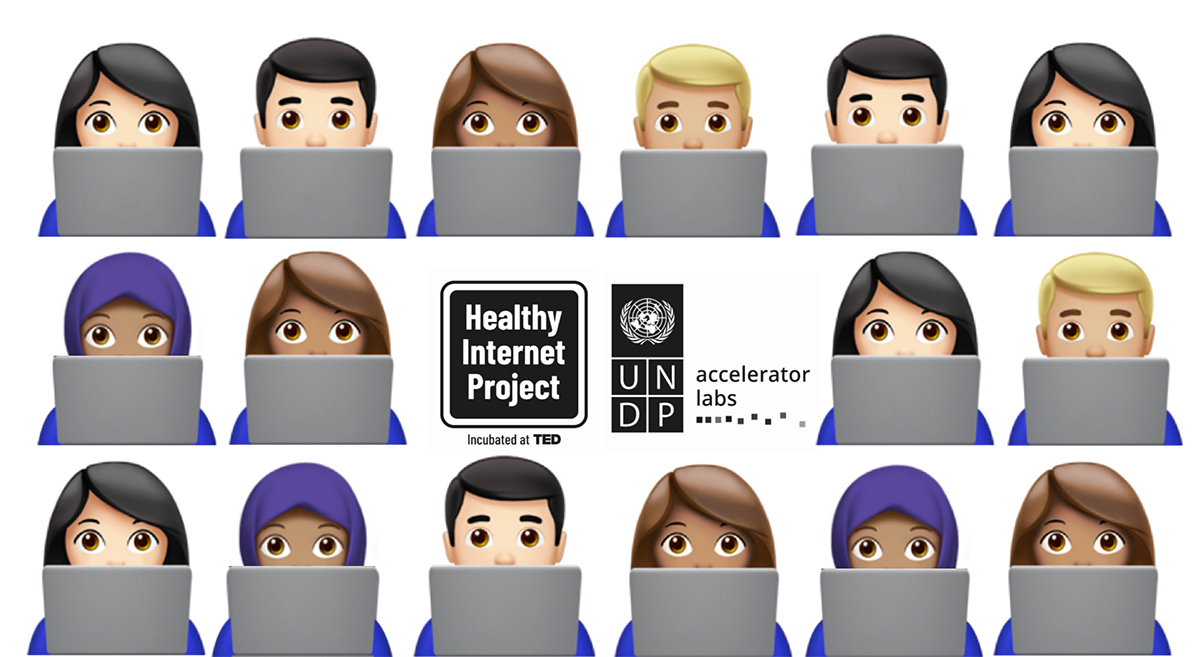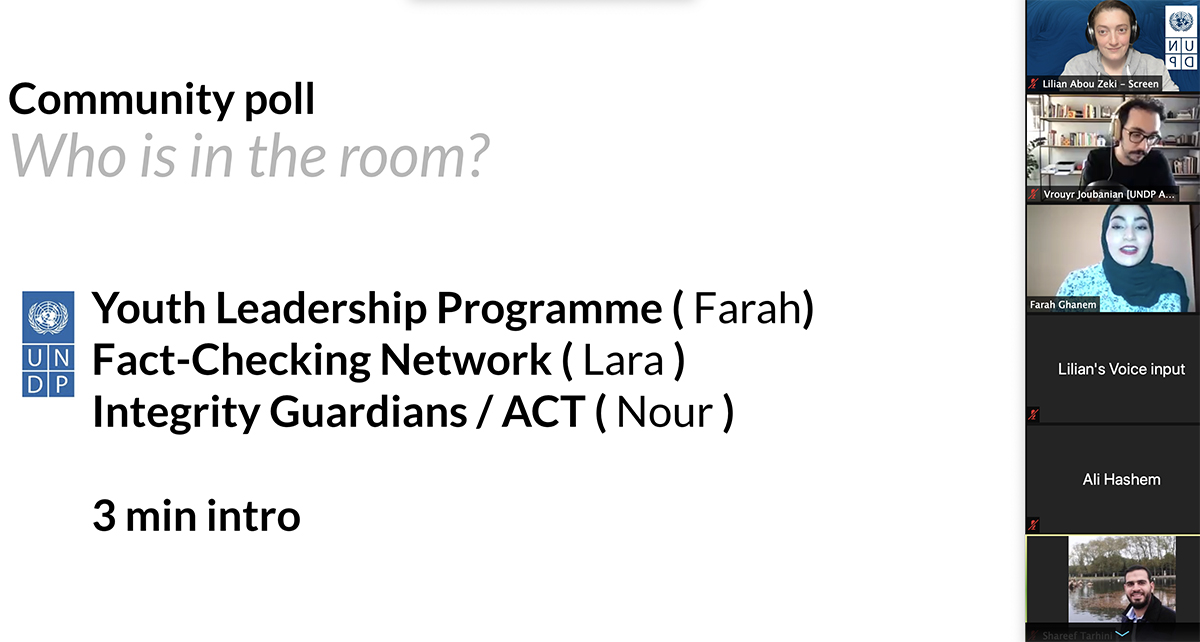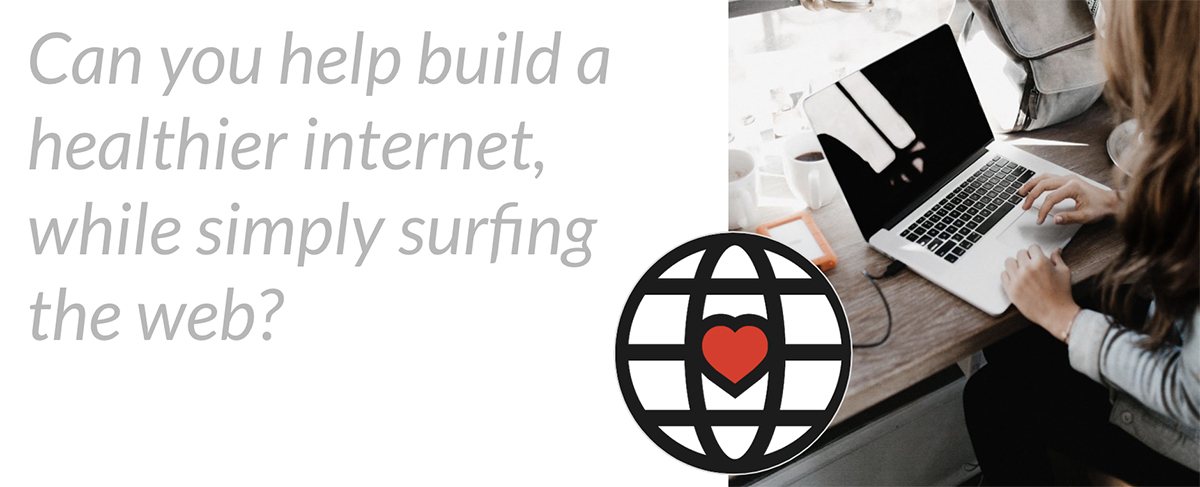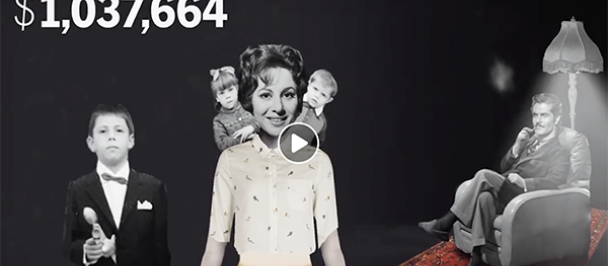What is the Healthy Internet Project?
The UNDP Accelerator Labs Network is collaborating with the Healthy Internet Project, incubated at TED. Our Lab in Lebanon joins a line-up of labs across the world in Argentina, Togo, Kenya, Sudan, Iraq, Morocco, and Namibia to lead the effort in using this creative browser add-on to engage communities in a bold experiment in crowdsourced moderation of the world wide web.
Being online these days has different implications on different groups of people, safe spaces for some are not for others, and content can lead to life changing trajectories for consumers, based on background, education, and emotional/psychological state.
Accordingly, the onus lies on big tech to implement and design policies and tools that can allow for equitable and safe access and online experience for everyone. However, creating a healthier internet will also come through its actual users. While big tech remains accountable and responsible for the safety of online spaces for all groups and contexts. It is also unlikely that big tech policy can account for each and every country’s social norms, fabric, and nuances. This is where the role of partnerships with organizations like UNDP and empowering products such as the “Healthy Internet project” comes in.
What does crowdsourcing a healthier internet mean?
“The Healthy Internet Project spent the past year building and refining an easy-to-use browser extension with a grand objective: to help make the internet better through crowdsourced moderation. User research and co-creation with people in over 10 countries has led to a robust tool, now available in English, Portuguese, Spanish, Arabic, and French. If you have access to a desktop computer, you can add the extension to your browser via either the Chrome or Firefox web stores. A mobile-friendly interface is in the works! On the extension, a quick 5-step on-boarding process establishes our shared mission, shares our strict user privacy policy and demos the tool in context. Then, as you come across sites, articles, or public posts that you find harmful, you can mark, or “flag”, them using the extension. You are able to mark whether the content in question contains lies or manipulation, abuse or harassment, or division or fear. Since good ideas are also out there too, you can flag them to be shared more widely.”
— Anand Upender, Design Lead and Renae Reints, Associate Product Manager at TED Conferences
UNDP Lebanon has numbers of communities engaged at any given time, in many areas and sectors. Notably three communities stood out as the ideal candidates for our first experiment using the tool:
- Community building efforts led by our Peace Building team who have invested heavily in youth across the country in form of a Fact-checking network trained and supported in combatting fake news, especially in light of COVID-19.
- Integrity guardians working with our Anti-Corruption specialists across the country office and Regional Hub. A network of engaged students in the fields of law, political sciences, and the like, who come together through university clubs and activities on variant topics.
- Our long standing Youth Leadership Programme (YLP). YLP, which is now running its 7th iteration, aims to empower change-makers and support the youth to design and implement innovative, impactful, and sustainable development solutions, whether in the form of social enterprises, nonprofits, NGOs, initiatives, or campaigns.
Tech products often carry pre-designated ambitions and the only way we can truly determine their true functional role is through adoption, usability, and by observing the way people and communities own and/or hack these tools. For April and May, we will pilot the Healthy Internet Project browser extension with our three communities, specifically 40 champions divided around 3 missions relevant to each community’s priorities (COVID-19, Access to Information Law, and Lebanese Innovation in and outside the country).
To rally some of our youth leaders across Lebanon, who would actively jump on an hour and a half call on a Friday to collectively use their “internet surfing” as part of a bigger mission to “build a healthier internet” as early adopters of The Healthy Internet project was a real treat. Hoping this crowdsourcing effort through this creative add-on product would open up entry points for the particular internet narratives and unique context in Lebanon
Public health is also an online issue
We are still reeling from COVID and life with a pandemic, the vaccination journey so far has put one thing front and center, the health of individuals is PUBLIC HEALTH, the pandemic augmented the relationship between one and others. The internet is no different, a healthy experience for individuals everywhere has wide implications on the public health of our collective communal experience online.
A mission like “crowdsourcing flags for harmful online content”, brings up important questions on power dynamics and bias. What happens with flags? Who can verify them? What guarantees that bias, subjectivity, and that possible abuse of the tool won’t happen? All questions were raised by our youth champions.
The tool deposits all flags in a central data-base, whose access is limited to “mentors”.
To verify these flags and prevent misuse, more experienced users are given “mentorship” responsibilities such as reviewing submitted flags and providing feedback to users. Similar to Wikipedia and other crowd-based systems, users with consistent, quality contributions are given more responsibilities such as moderating content. This additional verification step helps ensure the database of flags is an honest representation of content online.
— Anand Upender, Design Lead and Renae Reints, Associate Product Manager at TED Conferences
We hope that our pilot during April and May 2021 would result in more answers and a better understanding of how can we all take an active role in co-creating the healthy internet we want to experience, at this time our “mentors” team remains small, limited to our UNDP team and a few trained community champions. However, if you have any examples of your experience researching misinformation, abuse, and division online
you can apply to join the mentorship volunteer team through this form, and we will be in touch if your experience is relevant.
We will be putting out an update in June, stay tuned as this experiment unfolds!

 Locations
Locations



